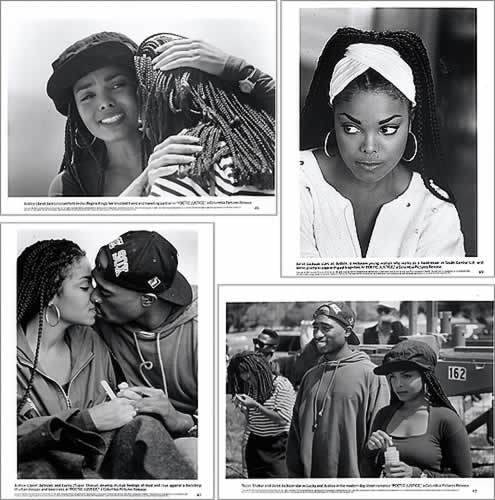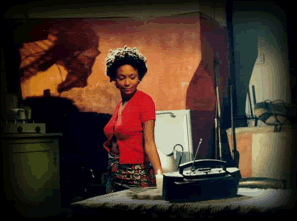
A brilliant concept for a character-driven drama, Kristen Scott Thomas plays Juliette who moves in with her sister's family after 15 years in prison for murder. Her sentence comes out pretty early in the film, so I don't think I'm ruining anything by telling you that she killed her son when he was six. It's a remarkable story of the struggles of resiliency. How does one go on after something so horrible and then after losing so much of one's life in such a shameful and impossible to understand manner?
Kristen Scott Thomas is excellent. Really excellent. Her eyes hold a well of sadness known particularly to those who have lost their children.
The script is excellently written and directed by Phillipe Claudel, including paralleling stories and characters that broaden the main plot and elaborate upon Juliette's journey. She is befriended by her parole officer who suffers from his own demons. Her sister, well played by Elsa Zylberstein,
 has two young daughters of her own whose mere presence continually emphasizes the conflict and develops opportunities for inter-character conflicts. She has chosen to adopt because of her fears after her sister's actions. It is profound how our actions lead to the understanding of our younger family members' worldviews and this is a deftly woven example. As Juliette is developed, set pieces illustrate and remind the audience of her struggles, from wheelchair bound extras to the new birth of a friend's child. Again and again, she must revisit how her life will always be different and similar to others. It's magnificent at times.
has two young daughters of her own whose mere presence continually emphasizes the conflict and develops opportunities for inter-character conflicts. She has chosen to adopt because of her fears after her sister's actions. It is profound how our actions lead to the understanding of our younger family members' worldviews and this is a deftly woven example. As Juliette is developed, set pieces illustrate and remind the audience of her struggles, from wheelchair bound extras to the new birth of a friend's child. Again and again, she must revisit how her life will always be different and similar to others. It's magnificent at times. And yet, there are moments that are too heavy handed. A friend tells her that he doesn't judge her because he worked in a prison once and has learned that we, the free and the convicted, are all the same. Oh, brother. It's already clear after explaining that he worked in a prison for a time, but he goes on and explains it all so unnecessarily. It's too bad because it's otherwise a wonderfully tender and hopeful moment. There are others included in the film and still more in the extras' deleted scenes. I wish they had cut just a little bit more. The film could have soared even higher.

All in all it's very very good. I put off watching it because I thought it'd be too depressing and, while there is a deep sadness to it, the film is extremely hopeful. This is not misery-porn like Cherrie Baby or some Lars Von Trier sadistic parade of emotional torture. Kristen Scott Thomas' reserve becomes a force of strength and hope and the surrounding cast is a crew of some of the best people one could ever hope to know. Perhaps a bit too optimistic, but there are plenty of judgmental side characters for balance. It never feels too cheerful. It is true that spending an evening with a bunch of kids running around a beautiful home and walking around a vineyard with a bunch of intelligent friends is wonderful and it does regulate the dreariness of life. This is a character who, like her social worker and parole officer say, is very lucky to have family. And through these thoughtful adult relationships and the bonds of communal, daily, family living, a very wounded soul can be a resource of love and support as well. And maybe live happily ever after too. Well, can live ever after, which is often the best we can reasonably hope for, and that's OK too.











